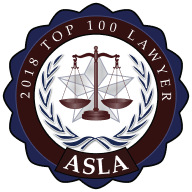Experiencing a bicycle accident can be a life-altering event, leading to significant physical, emotional, and financial challenges. In Georgia, navigating the litigation process following a bicycle accident can seem overwhelming, but understanding the steps involved can help ease some of the stress and uncertainty. This comprehensive guide will walk you through what to expect during the litigation process for a bicycle accident case in Georgia — providing clarity and confidence as you seek justice and compensation for your injuries.
Initial Consultation and Case Evaluation
The litigation process begins with an initial consultation with an attorney who focuses in personal injury law. During this meeting, you will discuss the details of your accident, including how it occurred, the injuries sustained, and any evidence you have gathered, such as photographs, witness statements, and medical records. The attorney will evaluate the merits of your case, determining whether there is sufficient evidence to proceed with a lawsuit. This initial consultation is crucial as it sets the foundation for your legal journey and allows you to understand the potential outcomes and challenges of your case.
Filing the Complaint
If the attorney believes you have a valid case, the next step is to file a complaint in the appropriate Georgia court. The complaint outlines the facts of the accident, the injuries sustained, and the legal basis for your claim against the defendant. It is essential to file the complaint within the statute of limitations, which is typically two years from the date of the accident in Georgia. Filing the complaint initiates the formal legal process and signals to the defendant that you are seeking compensation for your damages.

Serving the Defendant
Once the complaint is filed, the defendant must be formally served with the legal documents. This process, known as service of process, ensures that the defendant is aware of the lawsuit and has an opportunity to respond. Service can be accomplished through various methods, such as personal delivery by a process server or sheriff, or by mail in certain circumstances. Proper service of process is critical, as it allows the case to move forward and prevents delays or dismissals based on improper notification.
Defendant’s Response
After being served with the complaint, the defendant has a specified period, usually 30 days, to respond. The defendant can file an answer, admitting or denying the allegations in the complaint, and may also raise any affirmative defenses. In some cases, the defendant might file a motion to dismiss, arguing that the complaint lacks legal merit or that certain procedural issues exist. The response from the defendant sets the stage for the next phase of the litigation process and helps define the issues that will be addressed in court.
Discovery Phase
The discovery phase is a critical part of the litigation process, allowing both parties to gather and exchange information relevant to the case. This phase includes various methods of discovery, such as interrogatories, depositions, requests for production of documents, and requests for admissions. During this time, your attorney will collect evidence to support your claims, while the defendant’s legal team will seek information to challenge your case. The discovery process can be time-consuming and complex, but it is essential for building a strong case and preparing for trial.
I had the pleasure of working against Chris on a fairly complicated case. Chris was professional during the course of litigation, and undoubtedly maintained his clients’ interests as the primary focus throughout. Due to Chris’ efficiency and advocacy for his clients, we were able to resolve the case for a reasonable amount, without spending unnecessary time and expenses. I hope to have more cases with Chris in the future, and would have no hesitation recommending Chris to handle complex personal injury matters.” - Paul T.
Interrogatories
Interrogatories are written questions that each party must answer under oath. These questions are designed to gather detailed information about the accident, the parties involved, and any witnesses or evidence that may be relevant. Interrogatories can cover a wide range of topics, from the specifics of the accident to your medical history and treatment. Responding to interrogatories requires careful attention to detail and honesty, as the answers can significantly impact the outcome of your case.
Depositions
Depositions involve oral testimony given under oath and recorded by a court reporter. During a deposition, you, the defendant, and any witnesses may be questioned by the opposing party’s attorney. Depositions provide an opportunity to clarify facts, obtain additional information, and assess the credibility of witnesses. The testimony given during a deposition can be used at trial to support or challenge evidence presented by either party. Depositions are a crucial part of the discovery process, allowing both sides to build their cases and identify potential strengths and weaknesses.
Requests for Production of Documents
Requests for production of documents require each party to provide relevant documents and evidence related to the case. This can include medical records, accident reports, photographs, emails, and other written or electronic communications. These documents help establish the facts of the case and provide tangible evidence to support your claims. Gathering and organizing these documents is essential for building a compelling case and preparing for trial.
Requests for Admissions
Requests for admissions ask each party to admit or deny specific statements related to the case. These statements can pertain to facts, the authenticity of documents, or the application of law. Admissions can simplify the litigation process by narrowing the issues in dispute and reducing the need for extensive evidence on uncontested points. Responding to requests for admissions requires careful consideration, as admissions can have a significant impact on the outcome of the case.
Mediation and Settlement Negotiations
Throughout the litigation process, there may be opportunities for mediation and settlement negotiations. Mediation involves a neutral third party, known as a mediator, who facilitates discussions between the parties in an attempt to reach a mutually agreeable resolution. Settlement negotiations can occur at any stage of the litigation process and may result in a settlement agreement that avoids the need for a trial. Settling a case can save time, money, and stress, but it is important to ensure that any settlement offer adequately compensates you for your injuries and damages.
Dealing with Insurance Steps to File a LawsuitRelated Videos
Pre-Trial Motions
As the trial date approaches, both parties may file pre-trial motions to address various legal and procedural issues. These motions can include requests to exclude certain evidence, motions for summary judgment, or motions to dismiss specific claims. Pre-trial motions can significantly impact the scope and direction of the trial, and the judge’s rulings on these motions can shape the strategy and preparation of each party. Pre-trial motions require thorough legal research and persuasive arguments to achieve favorable outcomes.
Trial Preparation
Preparing for trial involves extensive preparation and coordination between you and your attorney. This phase includes organizing evidence, preparing witness testimony, and developing a compelling narrative to present to the jury. Your attorney will work closely with you to ensure you understand the trial process, your role as a witness, and the key points that will be emphasized in court. Trial preparation is crucial for presenting a strong and persuasive case that clearly demonstrates the defendant’s liability and the extent of your damages.
The Trial
During the trial, both sides will present their cases to a judge or jury. The trial process includes opening statements, the presentation of evidence, witness testimony, cross-examination, and closing arguments. Your attorney will present evidence to support your claims, such as medical records, testimony, and eyewitness accounts. The defendant’s legal team will challenge your evidence and present their defense. The trial is the culmination of the litigation process, and the outcome will depend on the strength of the evidence, the credibility of the witnesses, and the effectiveness of the legal arguments presented.
Verdict and Judgment
After both sides have presented their cases, the judge or jury will deliberate and reach a verdict. If the verdict is in your favor, the court will issue a judgment specifying the amount of compensation you are entitled to receive. The judgment can include damages for medical expenses, lost wages, pain and suffering, and other losses related to the accident. If the verdict is not in your favor, you may have the option to appeal the decision, seeking a review of the trial proceedings by a higher court.
Post-Trial Motions and Appeals
Following the trial, either party may file post-trial motions to challenge the verdict or seek a new trial. These motions can address issues such as errors in the trial process, newly discovered evidence, or excessive or inadequate damages. If post-trial motions are denied, the losing party may file an appeal with a higher court. The appeals process involves reviewing the trial record and legal arguments to determine whether the lower court’s decision was correct. Appeals can be complex and time-consuming, but they provide an opportunity to seek justice if errors or injustices occurred during the trial.
Enforcing the Judgment
If you receive a favorable judgment, the final step is enforcing the judgment and collecting the awarded compensation. This may involve working with your attorney to pursue collection methods, such as wage garnishment, property liens, or bank account levies. Enforcing a judgment can be challenging, particularly if the defendant is unwilling or unable to pay. However, your attorney can provide guidance and support to ensure you receive the compensation you are entitled to.
Fight for the Compensation You Deserve Contact The Gunnels Law Firm Today
Navigating the litigation process for a bicycle accident case in Georgia can be complex and overwhelming, but you do not have to face it alone. At The Gunnels Law Firm LLC, our dedicated team of attorneys is committed to providing compassionate and effective legal representation for clients injured in bicycle accidents. We understand the challenges you are facing and will work tirelessly to secure the compensation you deserve.
Contact us today for a free consultation to discuss your case and learn how we can help you through every step of the litigation process. Your journey to justice begins with a single step let us help you take it.







